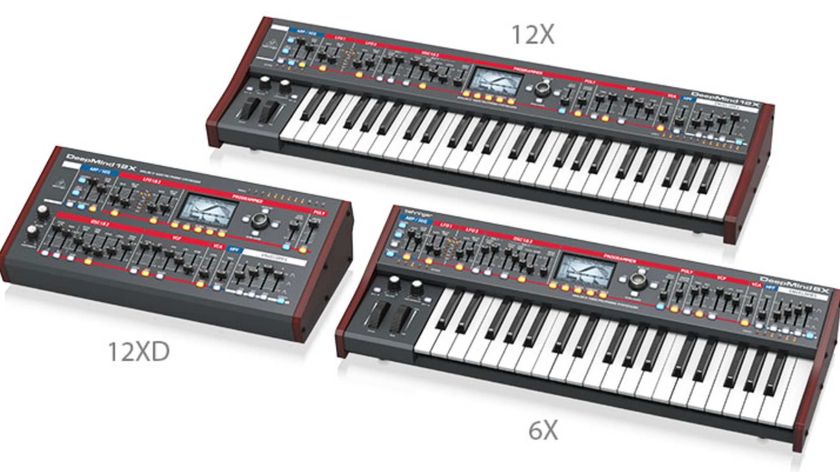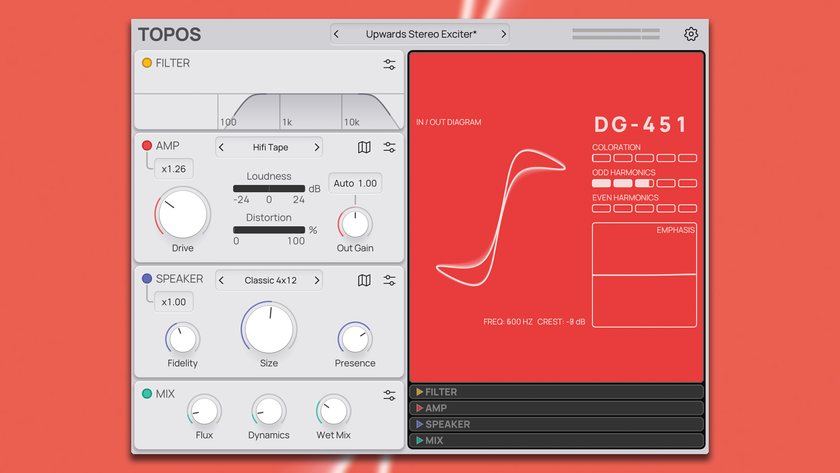Lo-fi legend, Ekoplekz, delves into the secrets behind his trademark sound
The gear behind latest album Bioprodukt
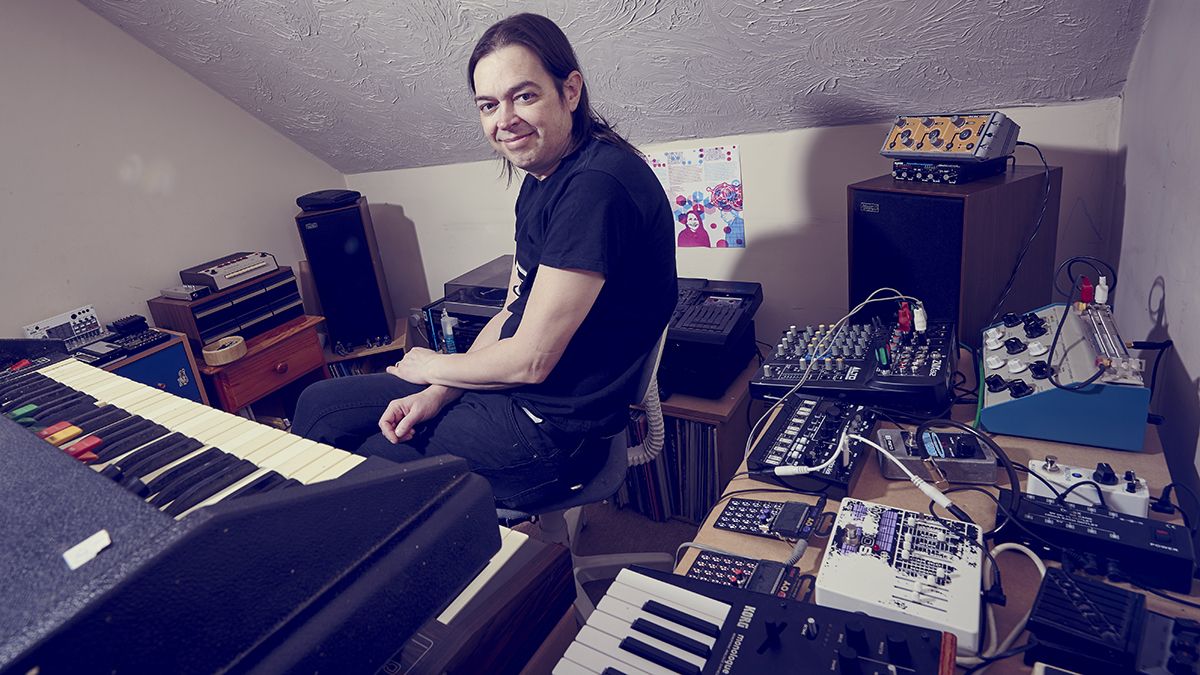
Never one to rest too long on his electronic laurels, Nick Edwards, otherwise known as Ekoplekz, has just released Bioprodukt, his umpteenth album proper and his fourth for the much-respected Planet-Mu label.
Bioprodukt showcases many of the traits that Ekoplekz has become known and loved for: the murky, lo-fi production, bubbling basslines, dubby delays and acidic squelches all remain; supplemented in this instance by firmer beats and, for want of a better phrase, a sunnier disposition in parts.
With such a distinctive sound to decipher, we headed to Nick’s Bristol home studio to unlock the secrets of his musical alchemy – that is, to ask him what gear he uses to make his music. In these days of computer dominance in the studio, we were surprised but not disappointed to find someone who genuinely thinks outside the box.
This is your fourth album for Planet-Mu, and Bioprodukt sees you hitting your stride. Are you in a good place with your music-making now?
“I guess so, although you have to bear in mind that the most recent things on Bioprodukt are about six months old now, and some of it probably dates back a year!
“I don’t really make albums as such; maybe I did in the early days, but now I send random tracks to the label every couple of months when we’ve agreed we’re going to do an album then Mike [Paradinas] at Planet-Mu picks his favourites from my favourites, shuffles it around, and it somehow turns into a record.
“If you said to me, ‘Make a record with a concept,’ I don’t think I could do it – it’s just not the way I work. I retrospectively title everything and hope that everyone thinks it’s intentional. I just tend to turn the machines on and go, really.”
Get the MusicRadar Newsletter
Want all the hottest music and gear news, reviews, deals, features and more, direct to your inbox? Sign up here.
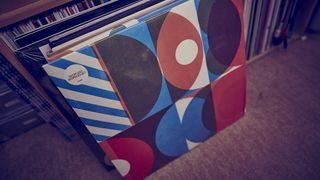
Is that the way you’ve always worked?
“Pretty much, yeah. When I was on smaller labels I did used to compile my own albums. One thing I always do when I’ve made a record is sell a lot of the gear that I made the record with so I can buy different things. That’s a deliberate ploy so I don’t keep sounding the same.
“The main synths on Bioprodukt are the Korg MS-20 mini and the Arturia MicroBrute, both triggering off the Korg SQ1 with a couple of the Volca machines – the Beats and the Sample. That’s the main ‘engine room’ of the album, but you won’t see them in the photos of my studio as they’re sold!”
So what have you replaced them with?
“Well, currently there’s the Korg Monologue, which is my latest acquisition and it’ll be on the next record. I’ve been having loads of fun with it and I’ve done a few tracks with it already for the next project…that’ll probably be out next year or the year after.”
Does the pace of releasing music properly frustrate you at all?
“It has to be that way because that’s the way the system works now. With Planet-Mu, you see, they’re a serious label that tries to make money, so they say, ‘You can’t make another record yet – you have to build it up and let everyone forget about you for a while’.
“When I first started it was all self-release stuff on CD-Rs, and you’d basically do some music over a couple of months and put it out while you were still enthusiastic about it.”
Is the best part of the process that initial rush of putting a track together in the studio then?
“Absolutely, yeah. The thing is, when I send the stuff to Mike at the label, that’s when I’m fired up about it as I’ve just done the stuff. What generally happens is that I’ll go through phases. There might be a month when I go through a dryness where nothing comes to me… then suddenly I’ll patch things in a certain way, and loads of juicy tracks will come out of it in the space of a few days.”
There might be a month when I go through a dryness where nothing comes to me… then suddenly I’ll patch things in a certain way, and loads of juicy tracks will come out of it in the space of a few days.
How do you balance real life with studio time?
“Because the studio’s at home, I can just grab the time as and when! I don’t really have a professional studio in the slightest, but I do use good monitoring headphones – I can work on the headphones when people are around in the house without disturbing them.
“When it comes to doing the mixdowns, I have to have it coming through the monitors; I’ve got to feel the air pushing around from the big speakers.”
So what monitors do you run things through?
“The thing with me is that I don’t use anything that’s recommended! For my current monitors, I’m using Celestion Dittons, which are midrange-quality hi-fi speakers from the 1970s. My step-father’s father died about five years ago and I got these massive speakers, which I took to Electrofix in Clifton to get them re-wired and modernised, and they sound fantastic!
“It’s not so much about the equipment you’ve got, it’s more about how you perceive it and how the environment of your studio works. After I’ve mixed a track down I’ll play it on the Bose system in the car and through the speaker on my mobile phone – if it comes through alright on everything, then as far as I’m concerned, it’s done my end.
“I don’t get too anal about it all, as I know that if it’s going to get released then it’s going to go through a professional audio engineer’s ears anyway. So I’m happy with what I’ve got, and although I haven’t got racks of outboard gear, I know the acoustics of my own space.”
…and the headphones you monitor on?
“They’re Sennheiser HD6 Mix headphones. They’re not massively expensive but I’ll use them for the recording and laying things down on the four-track, then I’ll get a good mix on them.
“As I say, when it comes to that final mixdown, I have to have it blasting through the Celestions. You hear about some people that do a headphone mix then release it on the album, but when I do that, it’s never quite right. I have to hear it in the air to get it right.”
It’s quite rare to hear someone talking about a ‘four-track’ now – everything goes down to that?
“Yeah… although if I’m going to continue with the sound I’m known for, I’ll probably have to invest in a replacement. I’ve had the same Yamaha MT3X for years. I bought it secondhand in 2001 to replace the previous one that had gone tits-up.
“Track four has now completely failed, and a couple of the inputs don’t work so I’m having to pan things across from other channels to get them to record. I love it but it’s on its last legs, really!
“Every now and then I’ll think maybe it’s time to move on and try mastering some tracks to digital, but it’s just not my sound.”
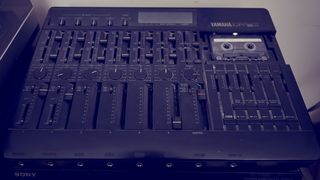
We were going to ask you how you achieved your trademark ‘saturated’ sound, but there’s our answer right there!
“Yeah – everything I’ve ever put out officially has gone through some sort of taping process along the way. It’s kind of like the sonic glue that holds my stuff together.
“I’d like to think that even if I go down a different stylistic route, people can still think, ‘Ah that sounds like Ekoplekz,’ and that’s because of the tape. Even though, as I said earlier, that I sell gear on and update synths, I always retain the same basic recording process with the four-track.
“That one time I tried to upgrade things and go digital to go for the clarity, when
I played the stuff back I thought, ‘That could be anybody’. I’m not big-headed enough to think I’m anything special… we’re all a bunch of electronic musicians and we all sound a bit similar, but the recording process is something that makes mine sound distinctive.”
With your rotating door policy towards your studio equipment, is there anything that you regret selling on?
“There are always things you regret selling, and I’ve done so much selling over the years that I don’t like to think about it! Laughably, I have this romanticised idea of working within restrictions and deliberately keeping your setup small. I’m never going to be the sort of person who wants banks of gear.
“I got into electronic music with stuff like Daniel Miller’s The Normal, where he’d make a track with one Korg 700S and a four-track. I loved the austerity of having to work within those confinements. I try and uphold that ethic of working with a small amount of gear and trying to be as creative as you can within that deliberately imposed limitation.
“So, when I felt I’d squeezed as much creativity out of the MicroBrute and the MS-20 – all those bubbling sub-basses on the album are from the MS-20 – then I must move them on or it will all sound the same on the next record.”
So, more analogues on the way into your setup then?
“It might surprise some people who think I’m an analogue purist that, I’m an analogue purist with the recording but not the gear I use. I recently bought the Korg Volca FM and I love it. It’s such a beautiful sound… and the brilliant user interface.
“You put a DX7 in front of me and I’ll be bored, as I don’t want to be programming parameters but the Volca is so tweakable in an analogue way. I’m the sort of person that, if you give me a big screen with a jog dial, that just demotivates me. I need to have that instant gratification.”
You’ve collaborated a fair bit, including with Bass Clef for the Beyond the Laptop shows. Is it important to you that a live show is more of a ‘performance’?
“Oh, god yeah. I’m not so bothered about recreating the studio version of my music when
I play live – I’d rather just get a very basic set of loops together then jam it and explore; have a basic framework but then just go off on one.
“My sets are always about 50% improvisatory. One thing I’ve learnt is that, unless someone insists on recording it, I don’t record the shows as they don’t always sound as good as you think they were!”
You combine a lot of pedals with the gear you use…is it almost like working in a modular way?
“I don’t have a modular system like Ralph from Bass Clef has, but what I use is a sort of modular setup. I have hardly any outboard effects, really, and most of the effecting goes down during the recording process. At the moment, my favourite reverb is this tiny Electro-Harmonix Holy Grail spring reverb, which is just fantastic. It all goes into the chain and becomes part of the actual recording rather than something I add on later.
“I do like the ubiquitous Boss digital-delay pedal, but I do love Electro-Harmonix pedals. I’ve got their Micro-Synth that has a very specific sound to it that I really like. So much so that the writing is all but worn off it where I’ve used it so much.
“I find a lot of the boutique pedals are a bit overpriced for what they actually do. For me, Electro-Harmonix make some of the best-sounding creative pedals.”
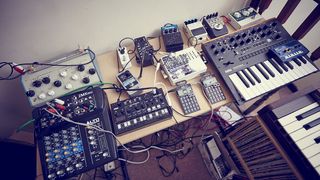
Generally, I’ve got this romanticised post-punk thing that cheap Korgs are perfect for. I love all the budget stuff Korg are doing now – they’ve just nailed it.
So is your studio is a completely software-free zone?
“You know what? When I’m recording and mastering the digital file, I just use freeware like Audacity to do it. Audacity is good enough for the little edits, nips and tucks that I need to do to be completely happy with the tape-recording. Sometimes I’ll maybe lop out a few bars if I’ve messed up, or do a smooth fade-out on the track or some work on the levels.
“Generally speaking, I don’t get too fussed with it, as you have to know when it’s time to leave it and delegate to the good engineer at the other end who’s going to harmonise the whole thing.”
Does living in Bristol inform the music you make at all?
“I’m sort of the old man of the scene! Even though I’m relatively new, I’m the same sort of age-group as the older guard – Portishead, Roni Size and Massive Attack. I just came to it later in life, as it were; although I was making music all through the nineties but I just couldn’t get a decent record deal.
“So, while all my contemporaries were making all these great records I was still beavering away sending cassettes out to record labels and getting nowhere. It was hard work then before Soundcloud and the like.”
Any gear you’d like to get your hands on to use on a project?
“Not really, no. Maybe, if I had the money, I’d get myself a Buchla Music Easel or maybe an EMS VCS 3 or something. Generally, I’ve got this romanticised post-punk thing that cheap Korgs are perfect for. I love all the budget stuff Korg are doing now – they’ve just nailed it. I don’t own any at the moment, but I’ve always thought that Novation make some interesting kit.
“I bought one of the very first Bass Stations back in the early 90s, which was probably one of the first attempts to make a new analogue synth after the digital revolution. They had a real nice character to them. When I play live, I still actually use an old Yamaha SU200 sampler/looper. For the time, it could do basic slicing and looping – I’ll still use that to take bits off the tapes and load them onto that so I’ve got a loop on each pad then I’ll put that through all the pedals and jam with it.”














Future Music is the number one magazine for today's producers. Packed with technique and technology we'll help you make great new music. All-access artist interviews, in-depth gear reviews, essential production tutorials and much more. Every marvellous monthly edition features reliable reviews of the latest and greatest hardware and software technology and techniques, unparalleled advice, in-depth interviews, sensational free samples and so much more to improve the experience and outcome of your music-making.

